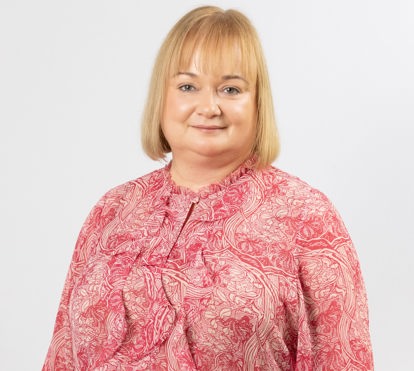We talk to Jane Smith, Curo’s Chief People Officer, whose passion for helping others learn has taken her across the world.

What made you embark on a career in people?
I actually started out working in finance. I was responsible for introducing computer-based training in a retailer, and it brought out my passion for helping people learn. I realised that with a career in people management, I could create opportunities for others to fulfil their potential.
Learning can change the hand that people are dealt. This is especially important in the different parts of the world where I’ve worked, for example, India and Thailand. Access to education and training, when combined with the determination of the individual, can mould a different future.
When I worked in India, the importance of education was really driven home. Through my work at Tesco, I gave colleagues access to education through technology. That gave them a real advantage in an employment market where there are many more people than there are jobs.
What was your first role?
At the age of ten, I helped my parents set up a market stall, selling socks and underwear. I learned so much, not only about the basics of business but also how to stand up for myself, be independent and mix with people from all kinds of backgrounds.
What have been the biggest achievements of your career?
I’m most proud of being able to help others accomplish their goals. For example, I supported a job share in one of my teams. This flexible way of working meant that the colleagues could work fewer hours at a senior level, enabling them to look after their children when they were young. Taking a career break can be one of the reasons for the gender pension and pay gaps. The longer you are away from work, the more daunting it can be to return. So flexible options are important to give opportunities for women to progress at work. It’s about understanding the benefits to the manager, individuals and the business. And it works - 15 years later, one of the women has now set up a business partnership and the other is a strategic advisor to a FTSE-10 company.
Tell me a bit about your time working with Tesco in South Korea and what you learned from your experiences there…
Tesco had 56 directors in South Korea: 54 were Korean, 55 were male and 55 were aged over 50. Then there was me. I stood out in terms of my nationality, gender and age. It’s a hierarchical culture, and the direction I wanted to take was sometimes in conflict with that. For example, older, more senior people would get rewards unrelated to their performance. I remember a colleague telling me he was getting a car just because he was turning a certain age. That’s not what I believe in, and so there was conflict when I tried to change things like that. I had to learn how to argue as a lot of the decision-making was based around that. But my biggest lesson was around communication. I couldn’t speak the language, so I learned how to read a room without the spoken word. I lived that for years, and it has heightened my skills of perception.
You recently made the switch from working at large, blue-chip companies to charities. What was behind that move?
I wanted to do something that felt more purposeful than working in a sales environment. I’m about the collective rather than the individual. In terms of Curo’s purpose, Homes for Good, I’ve lived in communities where not everyone has a home. Education and training can be a foundation to get a roof over your head, so there’s a link there.
Can you describe a moment in your career when you faced a barrier because you are a woman?
There have been loads. Throughout my career, people have made assumptions about my abilities based on how I look. I’ve done big jobs since my twenties, and I’m a smiley person, so people assume that I’m not capable. I’ve worked in male-dominated sectors, such as retail, where men were in all the big jobs. The workforces were balanced in terms of gender, but there wasn’t equity in terms of career progression. I’ve experienced sexual harassment and bullying – behaviour that wouldn’t be accepted now. I grew up in it. But I was brought up to be independent. My career doesn’t belong to anyone else.
Which women in the public eye inspire you and why?
As someone with a background in retail and fashion, I find Coco Chanel an inspirational pioneer. I like her quote: “A woman should be two things: who and what she wants.” It emphasises self-determination and authenticity and must have been a revolutionary thing to say at the time.
What’s the best advice you’ve been given?
I’ll always remember when a 19-year-old man at a town hall meeting of colleagues at Tesco in India stood up in front of the audience and said: “Take every opportunity to gain more skills, and the rewards will come.” He showed real maturity in recognising that pay and rewards follow once you’ve learned and delivered. That’s good advice for anyone.
What tips would you give to women starting out in their careers who are ambitious to move into a senior role?
The big roles require understanding systems and technology, so study science and computers. The world of work is shifting, and there’s a gender imbalance in terms of tech jobs – but there’s no reason for this. We need more women to design the systems of the future to avoid inherent bias being built into them.

